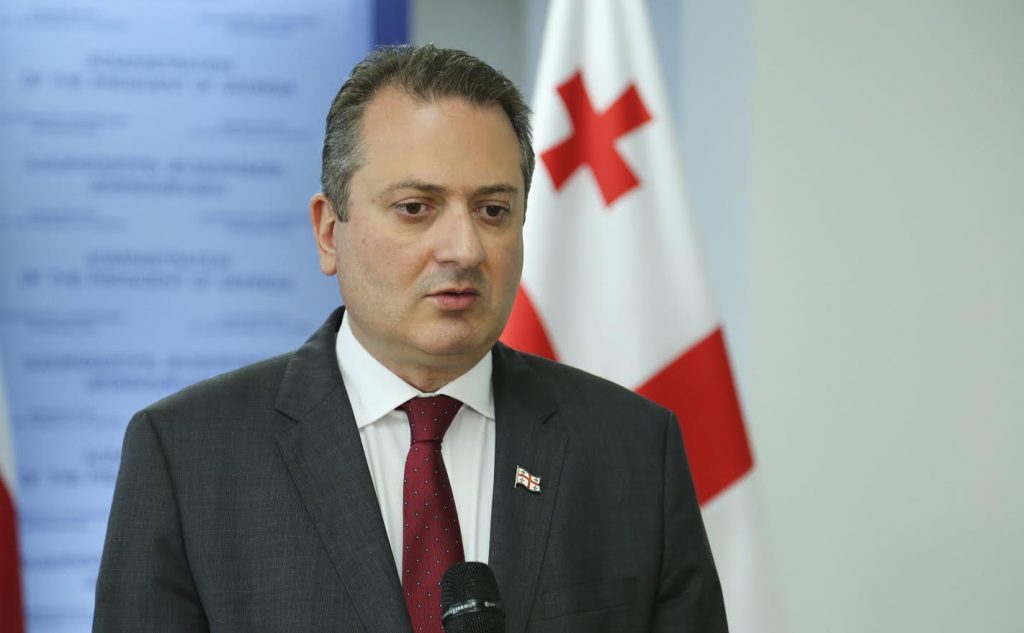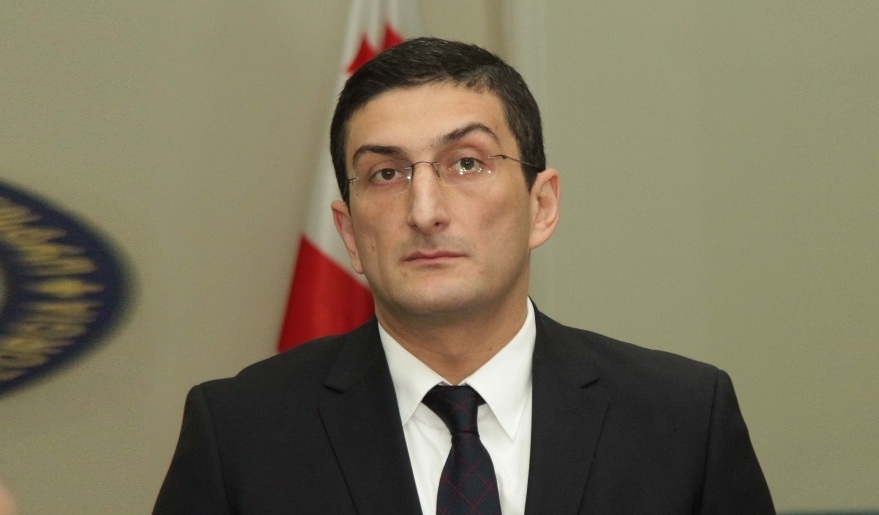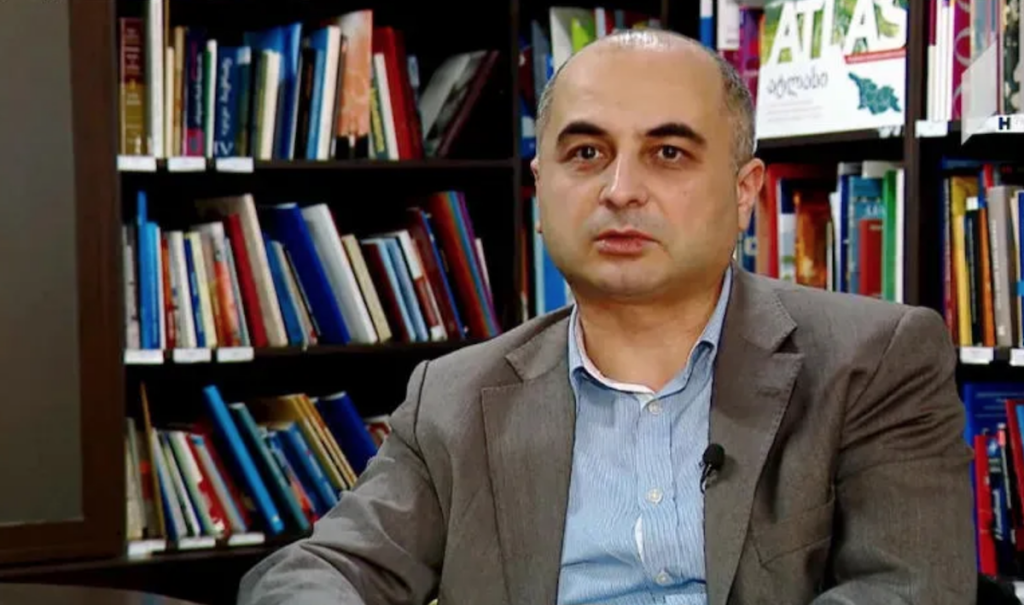"This was the final warning": Analysts assess U.S. assistant secretary of state's visit to Georgia
Experts on Georgia-U.S. relationship
U.S. Assistant Secretary of State for European and Eurasian Affairs, James O’Brien, held a briefing after meetings with the prime minister of Georgia, opposition, and civil society, stating that the ‘foreign agents’ bill is incompatible with EU standards. O’Brien also discussed potential sanctions against high-ranking Georgian officials.
JAMnews asked local analysts about the feasibility of impeaching government members and parliamentarians and when the U.S. would resort to harsh measures.
Tengiz Pkhaladze, an international relations expert and senior researcher at the European Center for International Political Economy in Brussels:
“O’Brien was clear: we’re at a critical juncture, where everything achieved so far could go down the drain. It’s not just about U.S. relations. Georgia’s interests and security could be seriously harmed, the country could lose political support and assistance vital for its state-building.
Prime minister Irakli Kobakhidze and O’Brien made such divergent statements that I have no illusions about any imminent convergence. I don’t feel the Georgian government has adequately heeded U.S. messages.
As for sanctions, the decision lies with the Secretary of State, so O’Brien couldn’t announce specific sanctions here. But it was clear that if nothing changes and the current situation persists—foreign agents bill, ruling party rhetoric, conspiracy theories, baseless accusations against Western partners—U.S.-Georgia relations will be reassessed.”

Gigi Gigiadze, an expert in international relations, former Ambassador of Georgia to Denmark and Iceland, and senior researcher at the Center for Economic Policy Research:
“It was made very clear that this law [on foreign agents] is entirely unacceptable to our Western partners, our European and American friends. This law contradicts the desire of the Georgian people to align with the West and become part of the European Union and Europe.
Particular attention was paid to the position of our Western partners. And this is a very important message because it shows that sanctions are possible. O’Brien emphasized that Bidzina Ivanishvili [oligarch, founder of the ruling party ‘Georgian Dream’] is not yet subject to sanctions. In other words, he does not exclude this possibility and directly links it to the processes taking place in Georgia.
So, it is clear that our partners have a negative attitude towards this law, and it is directly indicated how harmful this law is to our European future and alignment with the West. I think the right accents were set. And it is interesting that O’Brien expressed his personal disappointment with Ivanishvili’s refusal to meet with him, despite it being a request from the American side. This once again demonstrates the attitude of the Georgian government towards our traditional partners and, in particular, the United States.
“Although our partners have been calling, pleading, and warning our authorities for over a month that this law should not be passed, they still went ahead and did it. We expect the president to veto [the adopted law], but as seen from the statements of government members, they are not going to back down and intend to overcome the presidential veto as well.
This means we are entering a very complex phase. It is a crucial stage in the fight for the independence of our country, and it is very important that we continue to protest against this lawlessness and make every effort to compel the government to make concessions before the elections [parliamentary elections in Georgia are scheduled for October 2024].
In my view, the ruling party ‘Georgian Dream’ no longer has a chance of counting on any support in the elections. I believe there is complete agreement in Georgia that this party should no longer be in power and participate in governing the country.”

Zurab Batiashvili, a political analyst:
“Of course, O’Brien’s statement was very sharp. Of course, diplomatic etiquette requires that what is said ‘behind closed doors’ does not leak out. But we know how to read between the lines, and it is clear that this was the final warning. If nothing changes in the near future, if the foreign agents bill still comes into force, then harsh consequences will follow.
And most importantly, these sanctions will affect not only the initiators of this law but also the deputies who voted for it and their families. When you violate the Constitution of Georgia and go against the will of the nation, you are punished, and this punishment will be financial restrictions as well as a ban on entry into Western countries. You cannot go against the West and still enjoy all the benefits it provides.
Of course, at the forefront of all this is Bidzina Ivanishvili, and members of his family will also be included in the sanctions list. This will happen very soon; time is running out. The United States may make such a decision faster, and in the case of the European Union, it may take a little longer, but it will definitely happen. And there are also such pro-Western countries as Canada, Australia, New Zealand, Japan, South Korea, etc.
Moreover, O’Brien’s comment on Ivanishvili’s refusal to meet with him is very interesting. We know that Ivanishvili is practically isolated from the general public and has a very distorted view of reality, and O’Brien focused on this. Ivanishvili’s ideas and conspiracy theories are dangerous for himself and, most importantly, for the country. Because in fact, he is the informal ruler of Georgia, and when the ruler has misconceptions about the world, it is very dangerous. In my opinion, this is why O’Brien made a separate emphasis on this.
At the moment, there are no signs that the Georgian authorities have heard or understood anything. And one of the confirmations of this is the statement of prime minister Kobakhidze. But the main thing is what Bidzina Ivanishvili will say. And Kobakhidze is just a ‘voice actor.’ At least, it doesn’t seem otherwise for now. We’ll see.”





















